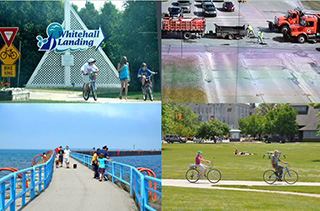
The League supports a transportation funding solution that covers all forms of transportation, not just roads.
Governor Snyder announced today (Dec. 18, 2014) that he and legislative leaders have come to an agreement on transportation funding. All votes from the House and Senate are expected today.
The plan calls for several statutory changes and is heavily reliant on a 1% increase in sales tax that will be put on the ballot May 2015. If all is approved, it will raise about $1.3 billion annually for roads and transit. The package also includes additional funding for local governments outside of the road funding formula.
The League and its partners are still combing through the details of the plan and we will have a full analysis to the members as soon as possible.
Here are some of the details that have emerged: This is a comprehensive proposal to address the dramatic shortfall that exists in Michigan’s transportation system. The announced plan is contingent upon voter approval, but provides significant new money do address our deteriorating transportation system. Some key funding components of the plan include:
- $1.2 billion annually of new money for roads
- $94 million of new money for local government
- $112 million for transit
- $300 million for schools
Click here for a decent breakdown of the transportation funding plan, with additional details, by the Associated Press.
League members with additional questions about the plan can contact the League’s John LaMacchia II a jlamacchia@mml.org and 517-908-0303 .
.
Matt Bach is director of media relations for the Michigan Municipal League. He can be reached at mbach@mml.org. and 734-669-6317 .
.


